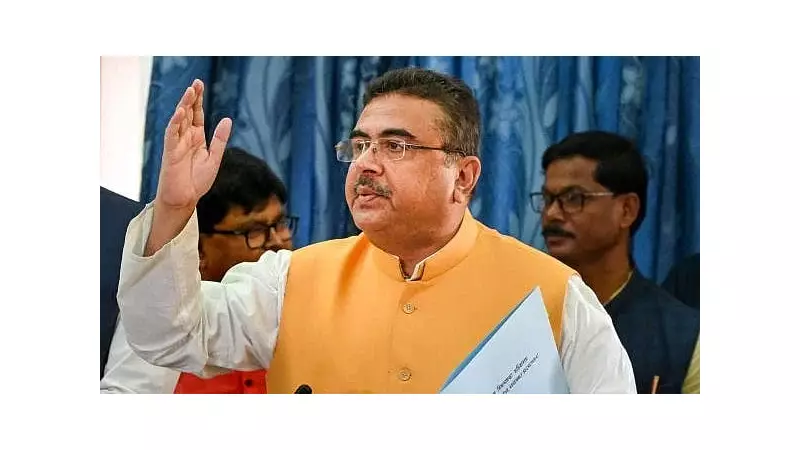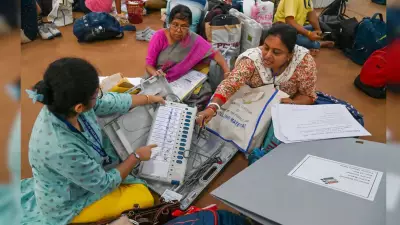
The Bharatiya Janata Party has made a significant move in West Bengal's political landscape by submitting substantial evidence of alleged electoral malpractices to the Election Commission of India. The party claims to have uncovered approximately 13.25 lakh dubious voters across five crucial Lok Sabha constituencies in the state, raising serious concerns about the integrity of the electoral process.
Massive Voter Irregularities Uncovered
According to the detailed submission made by the BJP delegation, the investigation revealed startling patterns of voter manipulation. The evidence points to 13,25,254 potentially fraudulent voters distributed across the Bongaon, Barrackpore, Howrah, Uluberia, and Sreerampur parliamentary constituencies. This discovery comes at a critical juncture as West Bengal prepares for upcoming elections.
The BJP delegation, led by state unit president Sukanta Majumdar and including key leaders like LoP Suvendu Adhikari and MP Dilip Ghosh, presented their findings to the Election Commission in Kolkata. The party emphasized that their investigation was thorough and backed by concrete data that warrants immediate action from the electoral authorities.
Specific Constituency Breakdown and Findings
The evidence submitted reveals a detailed breakdown of the alleged irregularities in each constituency. Bongaon constituency emerged with the highest number of suspicious voters at 3,04,584, followed closely by Barrackpore with 2,89,995 dubious entries. Howrah constituency showed 2,65,923 questionable voters, while Uluberia and Sreerampur recorded 2,41,612 and 2,23,140 respectively.
The investigation uncovered multiple categories of irregularities that have raised red flags. Among the most concerning findings were instances of multiple voters registered under single addresses, including extreme cases where over two dozen voters were found registered at one location. Additionally, the party identified numerous cases of duplicate entries and voters registered at non-existent or commercial addresses.
Perhaps most alarming were the findings regarding deceased voters still appearing on electoral rolls and individuals registered without proper verification documents. The BJP claims these patterns indicate systematic manipulation of the voter lists that could significantly impact election outcomes in these closely contested constituencies.
Political Implications and Demands for Action
The timing of this revelation adds considerable weight to the ongoing political discourse in West Bengal. With elections looming, the BJP has positioned this as a crucial test of the Election Commission's ability to ensure free and fair polls in the state. The party has demanded immediate corrective measures, including thorough verification of the identified suspicious entries and necessary deletions from the voter lists.
This development occurs against the backdrop of increasing political tensions between the BJP and the ruling Trinamool Congress in West Bengal. The opposition party has consistently raised concerns about electoral integrity in the state, and this massive submission of evidence represents their most substantial effort to date to address what they describe as systemic voter list manipulation.
The Election Commission now faces significant pressure to investigate these claims thoroughly and take appropriate action. The integrity of the electoral process in these five constituencies, representing millions of legitimate voters, hangs in the balance as authorities examine the evidence presented by the BJP delegation.
As the political drama unfolds, all eyes remain on the Election Commission's response and the potential impact this controversy might have on the upcoming electoral battles in West Bengal. The outcome of this investigation could have far-reaching consequences for the state's political landscape and the credibility of its electoral process.





